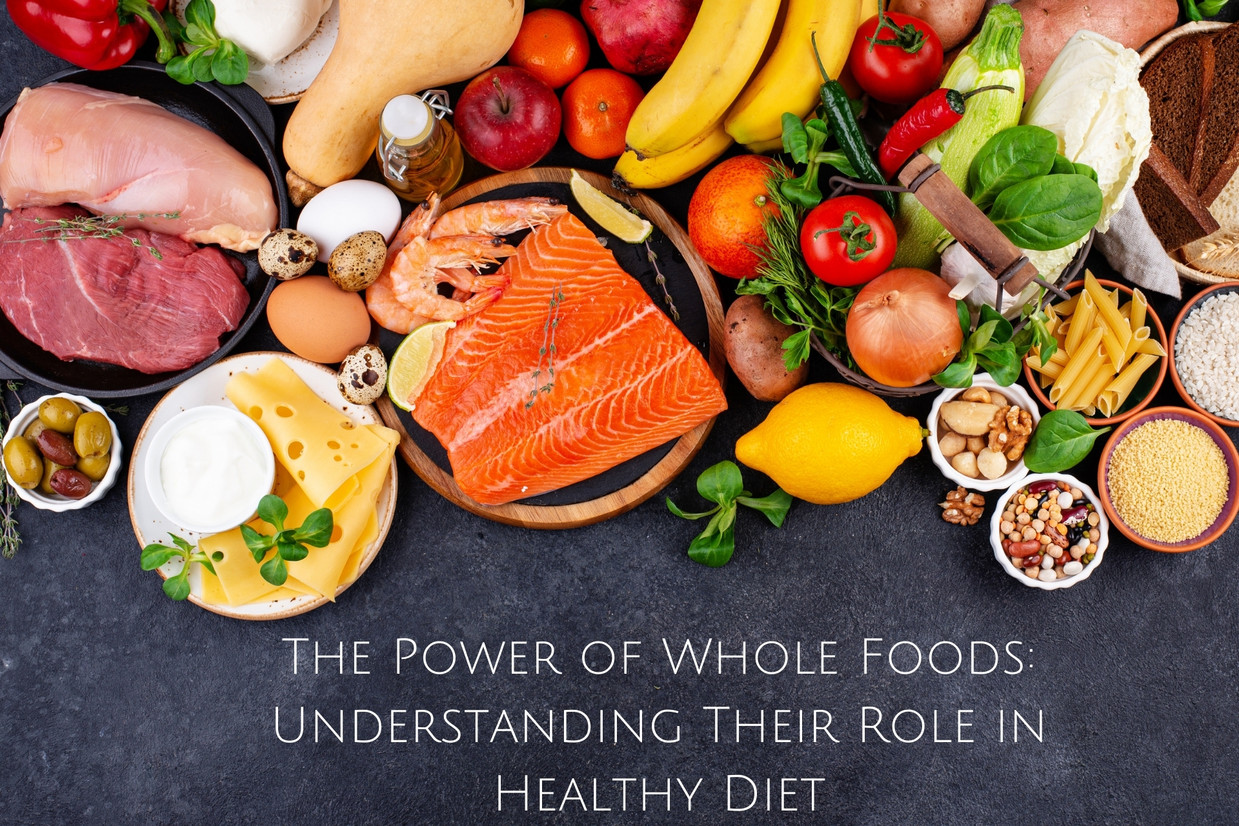The Power of Whole Foods: Understanding Their Role in a Healthy Diet
In today's fast-paced world, convenience and processed foods often take center stage in our diets. However, amidst the abundance of packaged snacks and quick-fix meals, we tend to overlook the power of whole foods – the nutrient-rich, unprocessed ingredients that nature has provided us with. Whole foods, in their natural state, hold an extraordinary capacity to nourish our bodies, promote vitality, and support overall well-being.
Defining Whole Foods
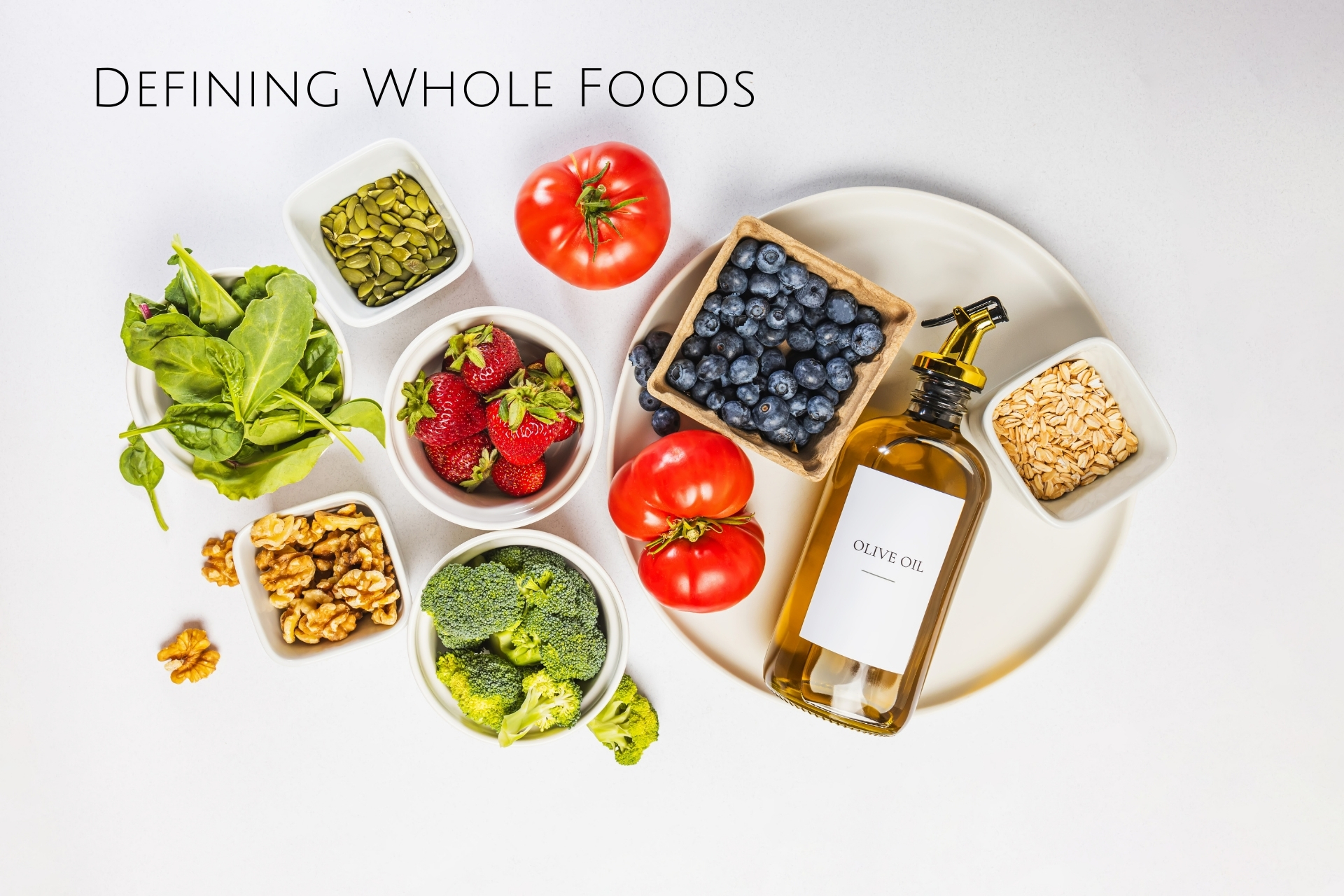
Whole foods are minimally processed or unprocessed ingredients that retain their natural form and nutrient content. They are the foundation of a healthy diet, providing essential vitamins, minerals, fiber, and antioxidants that our bodies need to function optimally. Whole foods include:
Fruits and vegetables:

Nature's colorful bounty, offering a diverse array of vitamins, minerals, and phytonutrients that support various bodily functions.
Nutrient-rich: They are packed with essential vitamins (like A, C, K, and folate), minerals (such as potassium and magnesium), and dietary fiber, which are crucial for overall health.
Antioxidants: Many fruits and vegetables contain antioxidants like flavonoids, polyphenols, and carotenoids. These compounds help combat oxidative stress and reduce the risk of chronic diseases.
Heart health: Their high fiber content can aid in lowering cholesterol levels, reducing the risk of heart disease, stroke, and hypertension.
Weight management: Fruits and vegetables are low in calories and high in fiber, making them an excellent choice for weight management and maintenance.
Digestive health: The fiber in fruits and veggies promotes healthy digestion and helps prevent constipation.
Reduced risk of chronic diseases: Regular consumption is associated with a decreased risk of various chronic diseases like certain cancers, diabetes, and obesity.
Hydration and skin health: Fruits with high water content contribute to hydration, supporting healthy skin and overall hydration levels in the body.
Whole grains:
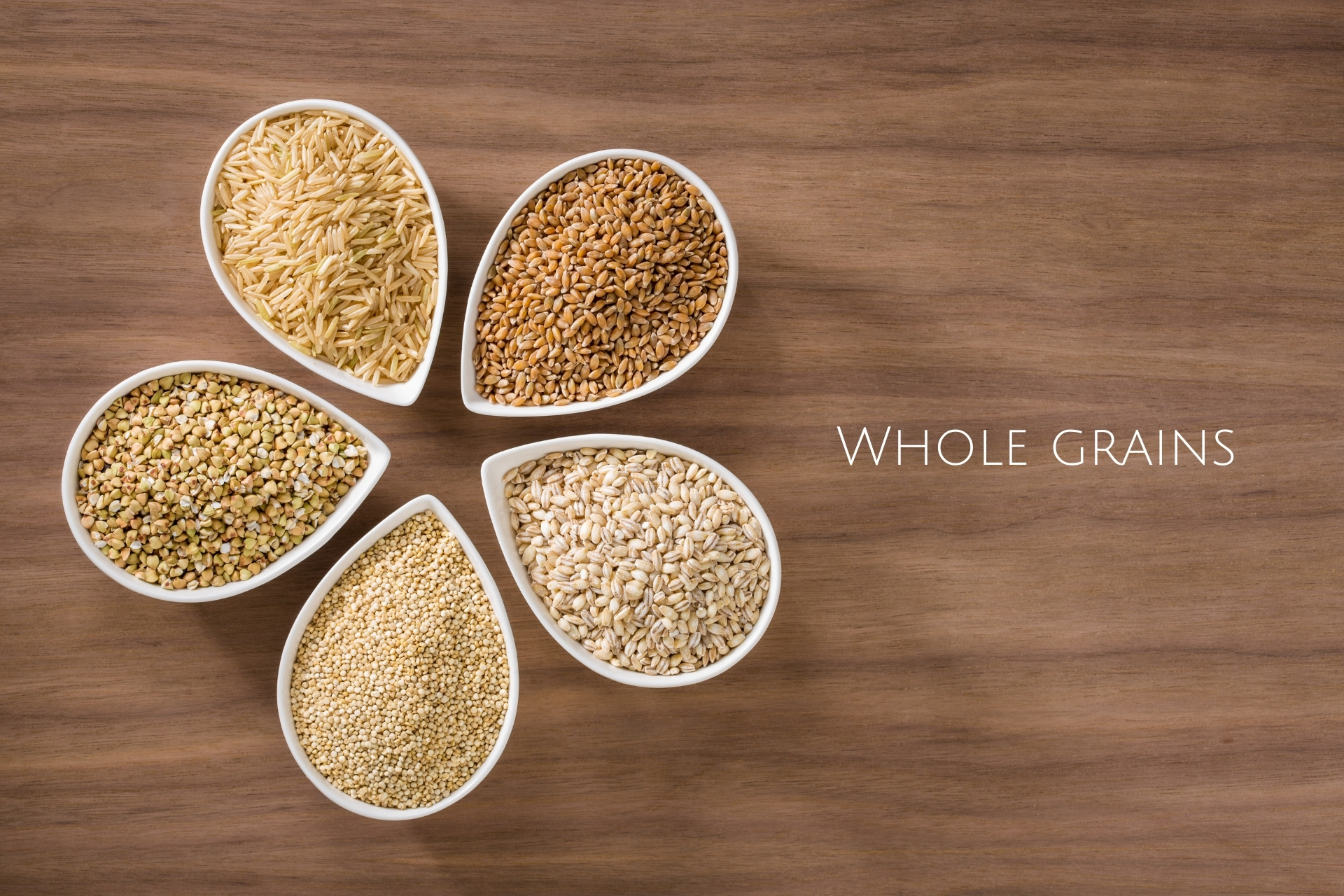
Unrefined grains like brown rice, quinoa, and oats, rich in fiber, B vitamins, and complex carbohydrates for sustained energy.
Nutrient-rich: They contain a wealth of nutrients, including fiber, B vitamins (like thiamin, riboflavin, niacin, and folate), minerals (such as magnesium, iron, and selenium), and antioxidants.
Digestive health: The fiber in whole grains helps maintain healthy digestion, prevents constipation, and promotes the growth of beneficial bacteria in the gut.
Heart health: Whole grains are linked to a reduced risk of heart disease. They can lower cholesterol levels, blood pressure, and decrease the risk of blood clots due to their fiber and antioxidant content.
Weight management: High-fiber whole grains can contribute to a feeling of fullness, potentially aiding in weight management by reducing overeating.
Blood sugar control: Compared to refined grains, whole grains have a lower glycemic index, which means they cause a slower and steadier increase in blood sugar levels, beneficial for managing diabetes and insulin sensitivity.
Reduced risk of certain cancers: Some studies suggest that regular consumption of whole grains is associated with a lower risk of certain cancers, such as colorectal cancer.
Longevity: Including whole grains in your diet has been linked to overall longevity and a reduced risk of premature death.
Opting for whole grains—like brown rice, quinoa, whole wheat, barley, oats, and bulgur—over refined grains offers an array of health benefits due to their higher nutritional content and fiber. Incorporating a variety of whole grains into meals can significantly contribute to a balanced and healthy diet.
Legumes:

Beans, lentils, and peas, packed with protein, fiber, and essential minerals like iron and potassium.
Rich in nutrients: Legumes are excellent sources of plant-based protein, fiber, complex carbohydrates, vitamins (such as folate, thiamine, and vitamin B6), minerals (like iron, magnesium, potassium, and zinc), and antioxidants.
Nuts and seeds:
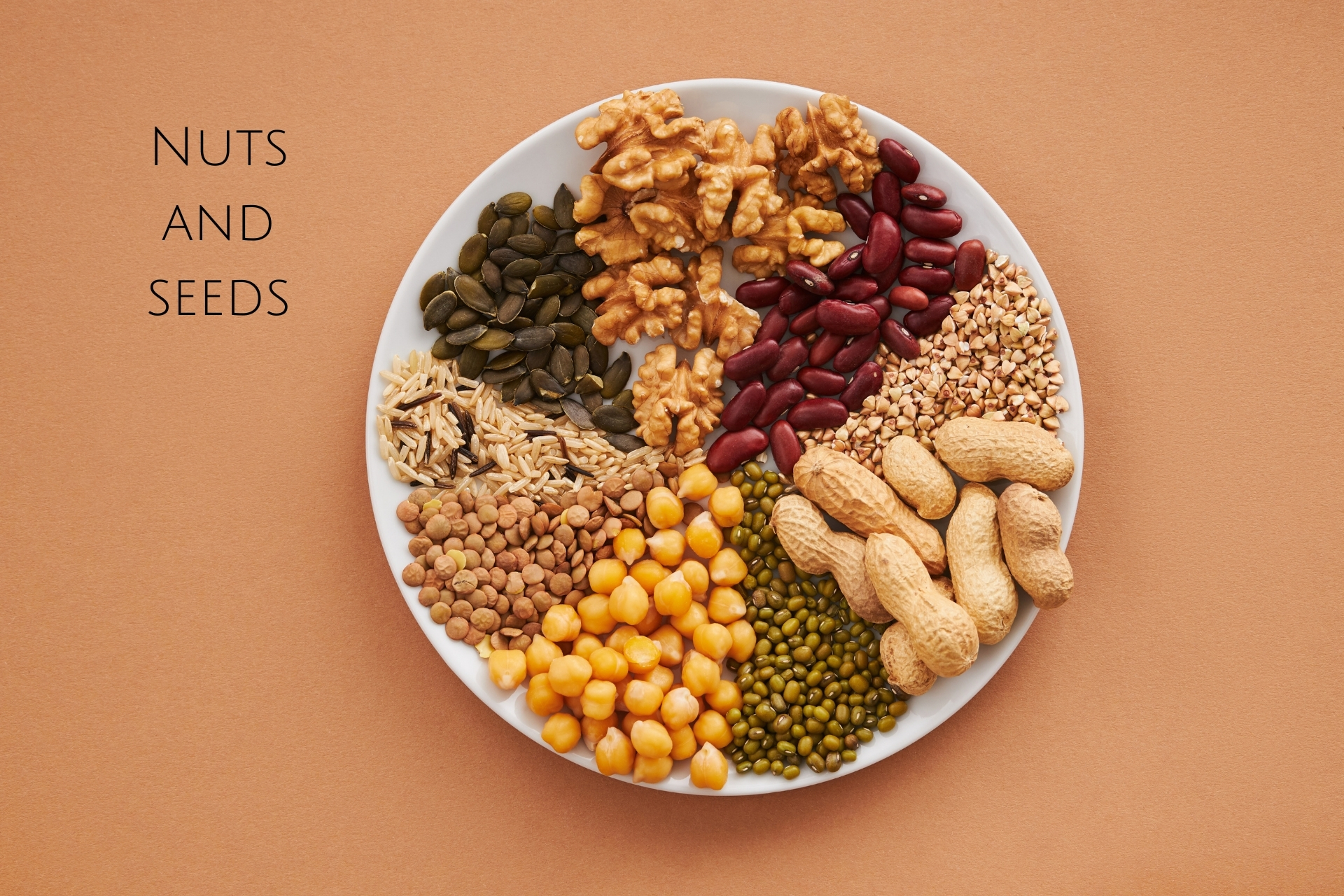
Nutrient-dense powerhouses, providing healthy fats, protein, fiber, and antioxidants.Weight management: Despite being calorie-dense, nuts and seeds can aid in weight management due to their high protein, fiber, and healthy fat content, promoting feelings of fullness and potentially reducing overall calorie intake.
Lean protein sources:

Fish, poultry, eggs, and beans, essential for building and repairing tissues.Incorporating lean protein sources into your diet is beneficial for various aspects of health, and choosing these options over higher-fat alternatives can contribute to a well-rounded and balanced nutritional intake.
The Benefits of Whole Foods
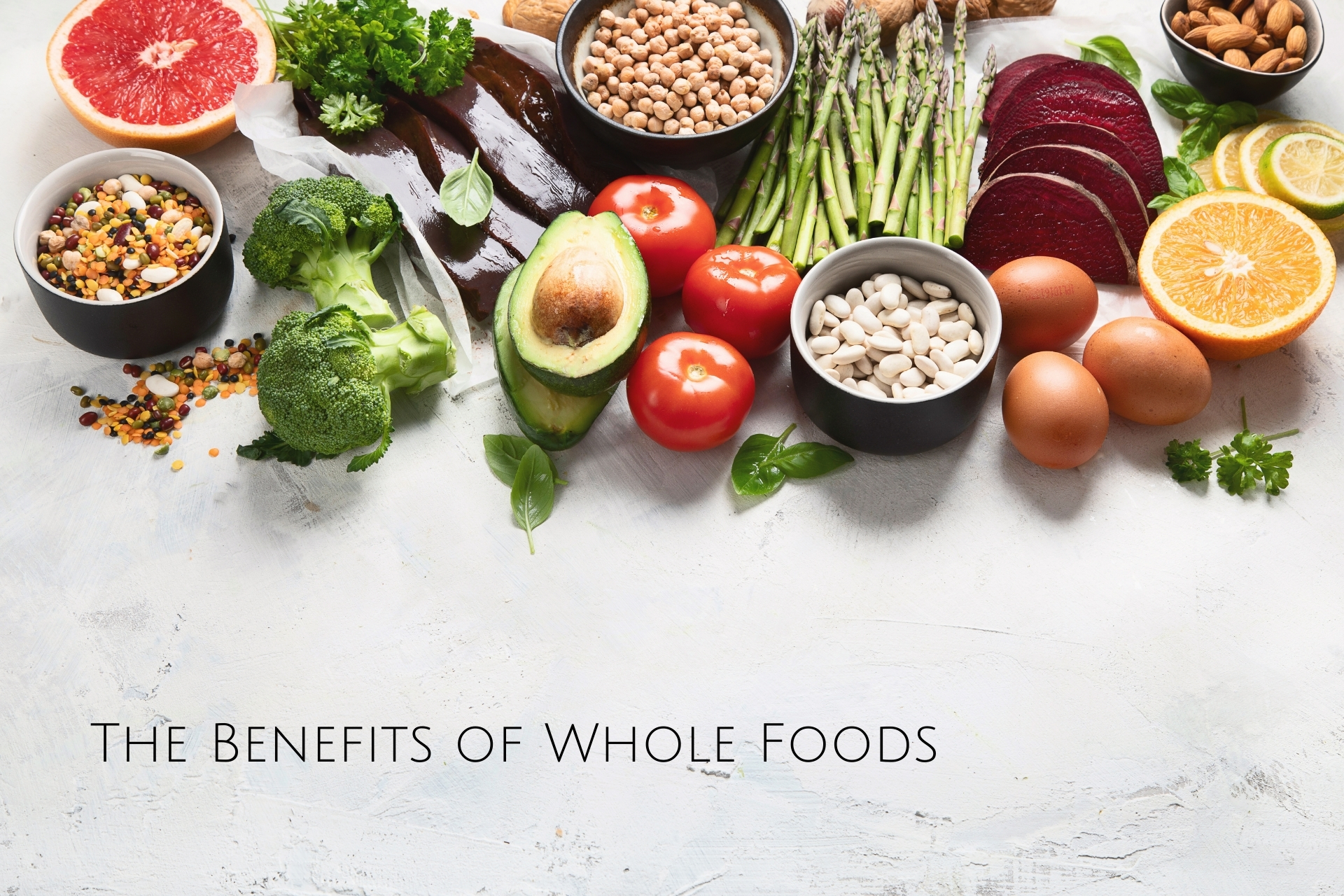
Whole foods offer a multitude of benefits for our health and well-being:
Enhanced Nutrient Absorption:
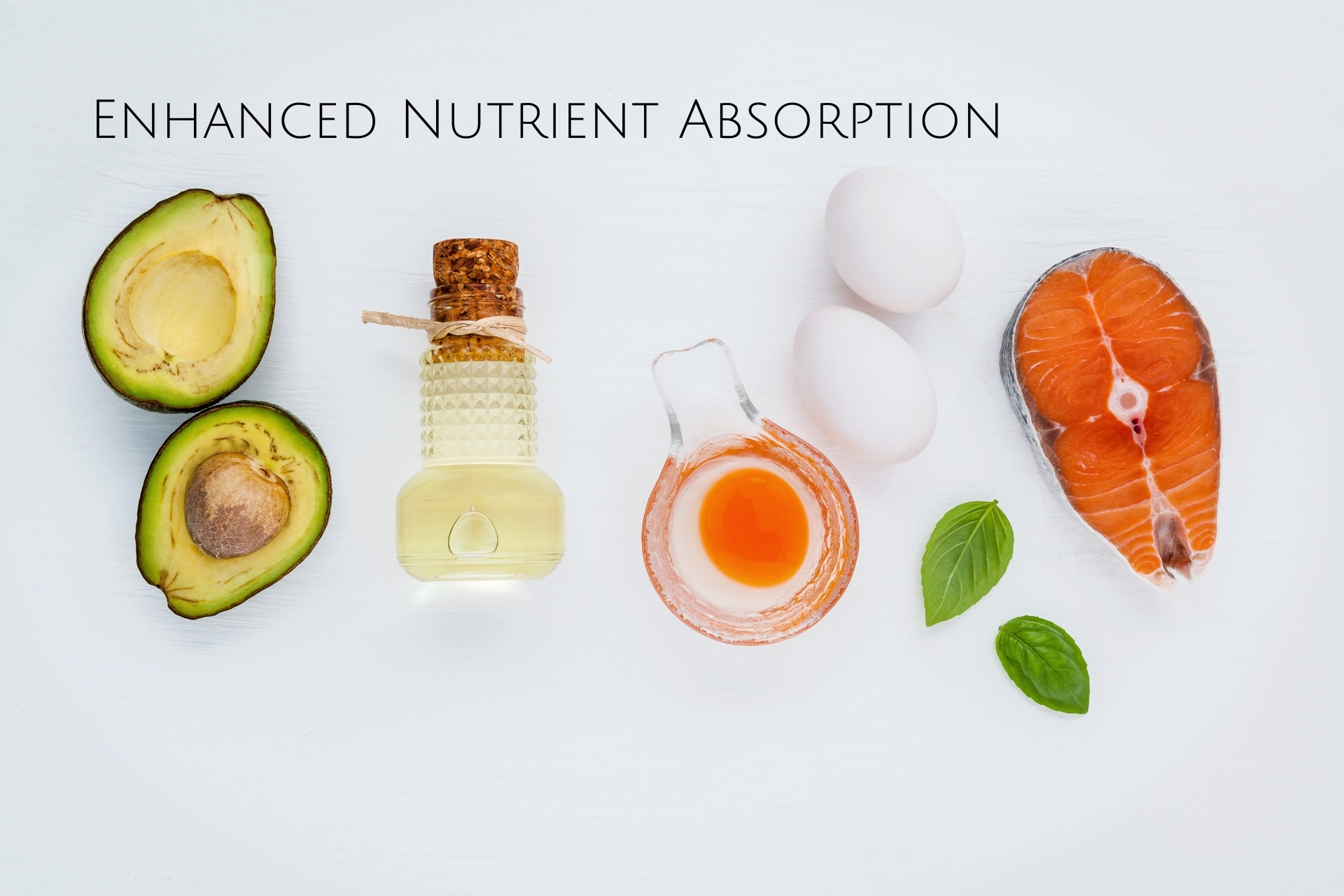
Whole foods provide nutrients in their natural matrix, ensuring optimal absorption and utilization by the body.
Rich in Fiber:

Whole foods are abundant in fiber, which promotes digestive health, regulates blood sugar levels, and contributes to a feeling of fullness.
Abundant Antioxidants:

Whole foods are packed with antioxidants, which combat harmful free radicals, protect cells from damage, and reduce the risk of chronic diseases.
Support for Immune Function:

Whole foods provide essential nutrients that support a strong immune system, helping ward off infections and illnesses.
Promotes Overall Well-being:

Whole foods contribute to overall well-being by supporting physical, mental, and emotional health.
Incorporating Whole Foods into Your Diet

Making whole foods a central part of your diet is a simple yet powerful step towards a healthier lifestyle. Here are some tips for incorporating whole foods into your daily routine:
Start with small changes: Replace processed snacks with whole-food options like fruits, nuts, or yogurt.
Cook more meals at home: Cooking at home gives you control over the ingredients, allowing you to choose whole foods and limit processed options.
Read food labels carefully: Be mindful of added sugars, preservatives, and artificial ingredients. Choose foods with minimal processing and a short ingredient list.
Explore new recipes: Experiment with new recipes that feature whole foods as the main ingredients.
Make it a family affair: Involve your family in choosing and preparing whole foods, fostering healthy eating habits together.
Embracing a Whole-Food Lifestyle

Adopting a whole-food lifestyle is an investment in your long-term health and well-being. By prioritizing whole foods, you nourish your body with nature's finest ingredients, empowering yourself to live a vibrant and healthy life. Embrace the power of whole foods and experience the transformative impact they can have on your overall well-being.
Recent Posts
-
Power Up Your Performance: Unleashing the Strength of Protein
Introduction:Whether you're an athlete pushing your physical limits or someone striving for an activ
-
Brush buddies:Finding the perfect tool for the job
Introduction:In the mesmerizing world of makeup, the unsung heroes are often the brushes that effort
-
Can You Wear Makeup Over Sunscreen?
Introduction:The age-old debate on whether you can wear makeup over sunscreen is one that often

